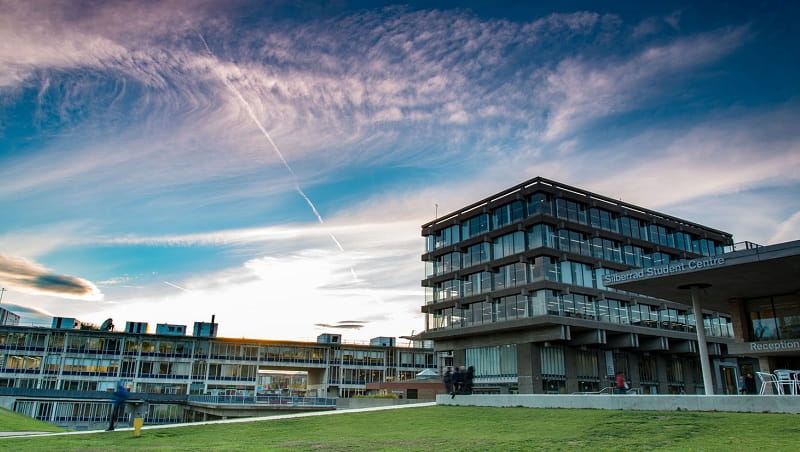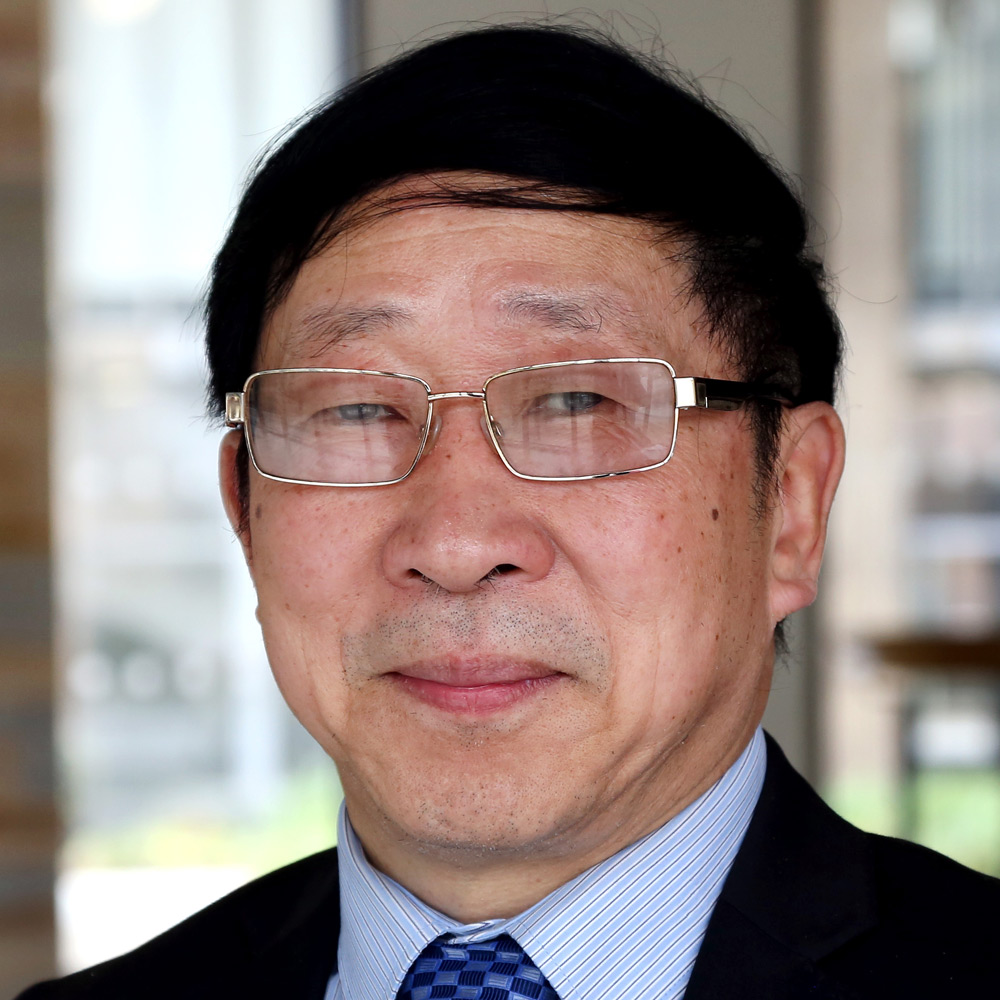BEng (Hons) Mechatronic Systems

Overview
What is the BEng (Hons) Mechatronic Systems?
The BEng (Hons) Mechatronic Systems is a three-year degree, extendable to four with an optional year in placement or abroad.
You’ll build a strong foundation in electronics, computer engineering and robotics, as well as the skills and tools to develop and test your own mechatronic systems.
Why this course
The BEng (Hons) Mechatronic Systems gives you the theory and practical knowledge to understand – and create – mechatronic systems that make a real impact on the world. You’ll learn about engineering processes, product design, and the use of digital and computer-aided (CAD) software.
You’ll learn from active computer scientists and engineers whose work and teaching are driven by creativity and imagination as well as technical excellence. Discover which areas you’re interested in exploring further such as assistive technologies, computer games, artificial intelligence, evolutionary computation, Big Data or robotics.
You’ll also be able to undertake a project or product development specified by a member of academic staff or a partner company.
Add a placement year or study abroad to put your learning into practice, expand your perspective and build confidence in professional or international settings.
You’ll graduate as a creative, experimental and focused engineer ready to explore further how electronics can impact the world around you.
Who should apply
- Future mechatronic and electronic engineers
- Students eager to develop their own electronics in a range of industries
- Those considering a career that benefits from a broad understanding of how electronic and computing systems work
- People who get to the heart of how things work
What you’ll learn
- Mechatronics: Cover their design and key components
- Robotics: Explore the fundamental knowledge and use of robotics
- Electronics: Master the scientific and engineering foundations of electronics
- Programming and mathematics: Learn to programme and apply mathematical skills to engineering
- Specialise: Tailor your degree through your choice of optional modules
Your learning experience
- Optional study abroad year: Spend a year at one of our partner universities and experience another culture with the Study Abroad programme
- Optional placement year: Gain professional experience in a business or organisation with university support from Placements at Essex
- Expert teaching: Learn from leading researchers revolutionising industries such as agriculture and healthcare
- Specialist facilities: Access our robotics gaming laboratory and robot arena with one of the world’s largest powered lab floors
- Specialist robotics: Make use of our wheeled and flying robots, robotic fish, intelligence wheelchairs, robotic arm and robotic hand
Careers and outcomes
A BEng (Hons) Mechatronic Systems degree prepares you for diverse careers in:
- Engineering: Design, development, research, diagnostics, manufacture
- IT: Software, hardware, systems integration, control systems, automation
- Healthcare: Surgical instruments, diagnostic tools, assistive technologies
- Business: Marketing, management, consultancy, patent law
- 92% of our engineering and technology undergraduates are in employment or further study (Graduate Outcomes 2025)
- 7th for student positivity in engineering (National Student Survey 2025, English Broad Discipline Universities)
- Top 150 (=10th in the UK) for telecommunications engineering in Shanghai Ranking’s Global Ranking of Academic Subjects 2025
Meet the researchers
Entry requirements
UK entry requirements
- GCSE: Science C/4.
- A-levels: BBB - BBC or 120 - 112 UCAS tariff points from a minimum of 2 full A-levels, including B in Mathematics or Further Mathematics. Please note we are unable to accept A-level Use of Mathematics in place of A-level Mathematics.
- BTEC: DDM - DMM or 120 - 112 UCAS tariff points from a minimum of the equivalent of 2 full A-levels. To meet the A-level Maths requirement, BTEC qualifications should include Distinction in Further Mathematics for Technicians or Calculus to Solve Engineering Problems. The acceptability of BTECs is dependent on subject studied and optional units taken - email ugquery@essex.ac.uk for advice.
- Combined qualifications on the UCAS tariff: 120 - 112 UCAS tariff points from a minimum of 2 full A levels or equivalent, including B in Mathematics or Further Mathematics, or BTEC qualifications should include Distinction in Further Mathematics for Technicians or Calculus to Solve Engineering Problems. Tariff point offers may be made if you are taking a qualification, or mixture of qualifications, from the list on our undergraduate application information page.
- IB: 30 - 29 points in the IB Diploma or 120 - 112 UCAS tariff points to include a minimum of 2 Higher Level subjects including 5 Higher Level Mathematics. Our GCSE Science requirement can be met with either: 2 in Standard level Science; 2 in Higher level Science; or 4 in IB Middle Years Science.
- IB Career-related Programme: We consider combinations of IB Diploma Programme courses with BTECs or other qualifications. Advice on acceptability can be provided, email Undergraduate Admissions.
- QAA-approved Access to HE Diploma: 120 - 112 UCAS tariff points, depending on subject studied - advice on acceptability can be provided, email Undergraduate Admissions.
- T-levels: 120 - 112 UCAS tariff points. We consider T-levels on a case-by-case basis, depending on subject studied. Depending on the course applied for there may be additional requirements, which may include a specific grade in the Core.
Plus one of the level 3 qualifications below:
Contextual Offers:
We are committed to ensuring that all students with the merit and potential to benefit from an Essex education are supported to do so. We make Contextual Offers, of up to two A-level grades (or equivalent) below our standard conditional offer, to applicants from underrepresented groups residing in the UK. Our Contextual Offers policy outlines the full eligibility criteria.
For further information about what a Contextual Offer may look like for your specific qualification profile, email ugquery@essex.ac.uk.
If you haven't got the grades you hoped for, have a non-traditional academic background, are a mature student, or have any questions about eligibility for your course, more information can be found on our undergraduate application information page or get in touch with our Undergraduate Admissions Team at ugquery@essex.ac.uk.
International & EU entry requirements
We accept a wide range of qualifications from applicants studying in the EU and other countries. Get in touch with any questions you may have about the qualifications we accept. Remember to tell us about the qualifications you have already completed or are currently taking.
Sorry, the entry requirements for the country that you have selected are not available here. Please contact our Undergraduate Admissions team at ugquery@essex.ac.uk to request the entry requirements for this country.
English language requirements
English language requirements for applicants whose first language is not English: IELTS 6.0 overall, or specified score in another equivalent test that we accept.
Details of English language requirements, including component scores, and the tests we accept for applicants who require a Student visa (excluding Nationals of Majority English Speaking Countries) can be found here
If we accept the English component of an international qualification it will be included in the academic levels listed above for the relevant countries.
English language shelf-life
Most English language qualifications have a validity period of 5 years. The validity period of Pearson Test of English, TOEFL and CBSE or CISCE English is 2 years.If you require a Student visa to study in the UK please see our immigration webpages for the latest Home Office guidance on English language qualifications.
Pre-sessional English courses
If you do not meet our IELTS requirements then you may be able to complete a pre-sessional English pathway that enables you to start your course without retaking IELTS.
Pending English language qualifications
You don’t need to achieve the required level before making your application, but it will be one of the conditions of your offer.
If you cannot find the qualification that you have achieved or are pending, then please email ugquery@essex.ac.uk .
Requirements for second and final year entry
Different requirements apply for second and final year entry, and specified component grades are also required for applicants who require a visa to study in the UK. Details of English language requirements, including UK Visas and Immigration minimum component scores, and the tests we accept for applicants who require a Student visa (excluding Nationals of Majority English Speaking Countries) can be found here
Additional Notes
If you’re an international student, but do not meet the English language or academic requirements for direct admission to this degree, you could prepare and gain entry through a pathway course. Find out more about opportunities available to you at the University of Essex International College
Structure
Course structure
We offer a flexible course structure with a mixture of core/compulsory modules, and optional modules chosen from lists.
Our research-led teaching is continually evolving to address the latest challenges and breakthroughs in the field, therefore all modules listed as subject to change. To view the compulsory modules and full list of optional modules currently on offer, please view the programme specification via the link below.
We understand that deciding where and what to study is a very important decision for you. We'll make all reasonable efforts to provide you with the courses, services and facilities as described on our website and in line with your contract with us. However, if we need to make material changes, for example due to significant disruption, we'll let our applicants and students know as soon as possible.
Components
Components are the blocks of study that make up your course. A component may have a set module which you must study, or a number of modules from which you can choose.
Each component has a status and carries a certain number of credits towards your qualification.
| Status | What this means |
| Core |
You must take the set module for this component and you must pass. No failure can be permitted. |
| Core with Options |
You can choose which module to study from the available options for this component but you must pass. No failure can be permitted. |
| Compulsory |
You must take the set module for this component. There may be limited opportunities to continue on the course/be eligible for the qualification if you fail. |
| Compulsory with Options |
You can choose which module to study from the available options for this component. There may be limited opportunities to continue on the course/be eligible for the qualification if you fail. |
| Optional |
You can choose which module to study from the available options for this component. There may be limited opportunities to continue on the course/be eligible for the qualification if you fail. |
The modules that are available for you to choose for each component will depend on several factors, including which modules you have chosen for other components, which modules you have completed in previous years of your course, and which term the module is taught in.
Modules
Modules are the individual units of study for your course. Each module has its own set of learning outcomes and assessment criteria and also carries a certain number of credits.
In most cases you will study one module per component, but in some cases you may need to study more than one module. For example, a 30-credit component may comprise of either one 30-credit module, or two 15-credit modules, depending on the options available.
Modules may be taught at different times of the year and by a different department or school to the one your course is primarily based in. You can find this information from the module code. For example, the module code HR100-4-FY means:
| HR | 100 | 4 | FY |
|---|---|---|---|
|
The department or school the module will be taught by. In this example, the module would be taught by the Department of History. |
The module number. |
The UK academic level of the module. A standard undergraduate course will comprise of level 4, 5 and 6 modules - increasing as you progress through the course. A standard postgraduate taught course will comprise of level 7 modules. A postgraduate research degree is a level 8 qualification. |
The term the module will be taught in.
|
COMPONENT 01: CORE
This module will provide you with an introduction to fundamental concepts of computer programming in the C language, which is particularly relevant to programming embedded systems and for electronic engineers.
View Introduction to Programming with C on our Module Directory
COMPONENT 02: CORE
Computers, embedded systems, and digital systems in general have become an essential part of most people's lives, whether directly or indirectly. The aim of this module is to introduce the software and hardware underpinnings of such systems at an introductory yet challenging level suitable for future computer scientists and engineers. Topics covered in the module include both top-view as well as bottom-view approaches to understanding digital computers. They range from the more theoretical (e.g., state machines, logic circuits, and von Neumann's architecture) to the more practical (e.g., how transistors produce binary signals, operating system functions, memory management, and common hardware devices). The module also includes problem solving classes in which a guided discussion of weekly exercises is aimed at giving the student an opportunity to consolidate his/her understanding of the topics involved. Upon completion of this module, students should have a good conceptual and practical understanding of the nature and architecture of digital computer systems and their components.
View Fundamentals of Digital Systems on our Module Directory
COMPONENT 03: CORE
This module is one of two concerned with scientific and engineering foundations on which electronics is based. All electronics components are based on physical principles that relate voltage, current flow and the storage or loss of energy. All the theory we need to learn about how circuits behave is based on the fact that electric charge cannot be created or destroyed, and that the energy of each electron just depends on where it is, and how fast it is moving. How charges move in materials depends on their crystal structures. From basic ideas, the main principles of electronics are built up so that they can be used in the wider study of electronics to solve problems.
COMPONENT 04: CORE
Want to become a Java programmer? Topics covered in this module include control structures, classes, objects, inheritance, polymorphism, interfaces, file I/O, event handling, graphical components, and more. You will develop your programming skills in supervised lab sessions where help will be at hand should you require it.
COMPONENT 05: CORE
This module comprises the second half of our 1st year series on fundamentals of electronics. The module focuses on reactive circuits (i.e., circuits with capacitors and/or inductors), basic semiconductors (i.e., diodes and bipolar junction transistors), electromotive devices, and operational amplifiers. The overview of these devices includes more theoretical concepts (such as Faraday's and Lenz’s laws) as well as more practical topics such as their transient and steady state responses to step and sinusoidal inputs, using phasors for circuit analysis, applications in analogue filters, amplification with feedback, power supply units, and DC motors and generators. The module includes weekly problem solving classes in which calculation exercises are discussed and four weekly lab sessions in which more theoretical concepts are applied to implementation and testing of a DC power supply unit.
COMPONENT 06: CORE
This module develops the fundamental concepts introduced in the Digital Systems Architecture. We examine how data are represented within digital systems, including floating point, 'text' and 'data' files, and how the conversions between internal and human-readable forms are performed. The design and applications of higher-level logic elements such as counters, registers and multiplexers are discussed, as well as the more general concept of the finite state machine and its design. Transmission of digital data between systems is introduced by examination of the RS232 protocol. Further, fundamental decisions on how such sources should be represented in digital format include sample rates and quantization accuracy are discussed. In the case of audio and video especially, the possibilities for signal processing and data compression are investigated
COMPONENT 07: CORE
Our Team Project Challenge gives you the opportunity to develop a range of professional skills by working as part of a small student team on a specific project. The projects are research-based and incorporate the concepts of specifications, design, and implementation. You’ll learn about sustainability, project and time management, design, legal issues, health and safety, data analysis and presentation, team reporting, and self-evaluation. You’ll also develop skills such as critical thinking and problem solving, agility, leadership, collaboration across networks, and effective oral and written communication, as well as curiosity and imagination, all of which will enhance your knowledge, confidence and social skills necessary to innovate and succeed in a competitive global environment.
COMPONENT 08: CORE
You’ll be introduced to some key elements of mathematics that are essential to engineering. You'll develop your understanding through working on examples in class, and through practical laboratory-based exercises using the programming tool, MATLAB.
COMPONENT 01: CORE
Sensors and actuators are key components in a mechatronic system. In recent years, the inclusion of electronics in many vehicle functions has created the demand for engineers who can design systems with integrated mechanical and electrical components. The modern car contains a large number of sensors and actuators that are integrated in mechatronic systems found throughout the vehicle. In addition, many producers are showing great interest in virtual prototyping, which requires the ability to derive an accurate mathematical model of a system, and to create simulations that accurately predict system performance. This module is dedicated to the study of such components, including devices that are based on new and emerging technologies such as micro electromechanical systems (MEMS).
COMPONENT 02: CORE
Need to build on your mathematical knowledge? Want to apply mathematical skills to engineering? Study the fundamental mathematics for engineering, covering topics like integral transform theory, probability theory, and numerical integration. Gain experience of using Matlab software to understand and solve problems.
COMPONENT 03: CORE
Digital systems are an important part of most electronic devices and systems. In this module students learn to design a small system using an industry-standard prototyping board based around a Xilinx FPGA. The module is laboratory based using Xilinx Computer-Aided Design (CAD) software and it builds on knowledge of digital circuits that students learn in CE161. Students learn how to design, and more importantly, how to debug and test a design, using laboratory test equipment, to convert an idea into working hardware.
COMPONENT 04: CORE
The robots are fast becoming part of our daily lives, autonomous cars will drive themselves, drones will deliver packages, and underwater vehicles will explore the oceans. This module covers fundamental knowledge on sensing, navigation, localisation, motion control, and decision making involved in most robotic platforms. You will be able to program simulated or real robots to perform a range of tasks.
COMPONENT 05: CORE
This module introduces the fundamental knowledge of modern control theory in order to solve complex control problems. It covers dynamic system modelling, MATLAB simulation, stability analysis, controller design, and optimal state controllers and observers. The focus is on theories and techniques in both time and frequency of domains for linear control systems. The module will give you a solid foundation for understanding the principle and operation of control systems, and their potential real-world applications.
COMPONENT 06: CORE
The overall goal of this module is to provide you with an understanding of how programs are written in C (a computer programming language) to solve engineering problems. Learn how to program an embedded microprocessor in C and how to design embedded microprocessor systems as solutions to various problems. Explore the design input and output modules for an embedded system.
View C Programming and Embedded Systems on our Module Directory
COMPONENT 08: CORE
This course covers the principles of project management, team working, communication, legal issues, finance, and company organisation. Working in small teams, students will go through the full project life-cycle of design, development and implementation, for a bespoke software requirement. In this course, students gain vital experience to enable them to enter the computer science/Electrical engineering workforce, with a degree backed by the British Computer Society, and by the Institute of Engineering and Technology.
COMPONENT 01: CORE
The highlight of our undergraduate degree courses is the individual capstone project. This project module provides students with the opportunity to bring together all the skills they have gained during their degree and demonstrate that they can develop a product from the starting point of a single 1/2 page description, provided either by an academic member of staff or an external company. In all the student spends 450 hours throughout the academic year, reporting to their academic tutor, and in the case of company projects, to a company mentor. All projects are demonstrated to external companies on our Project Open Day.
View Individual Capstone Project Challenge on our Module Directory
COMPONENT 02: CORE
This module gives a high-level view of the design process of mechatronics systems. It provides students with background knowledge on mechatronics and discusses applications and types of such systems. The module introduces and builds upon previous knowledge of relevant main components, such as sensors and actuators, and their operational characteristics. The students also get exposed to aspects of mechatronic design, such as dividing a system to subsystems, mechanical design through specialised software, control design, and designing against failure.
COMPONENT 03: CORE
Interested in designing, programming and evaluating AI robots? To understand the potential applications for AI in the real world? Study different approaches to the use of AI robotics, along with associated design methodologies. Gain practical experience of building your own autonomous mobile robots and intelligent machines, from sensing to action.
Placement
On a placement year you gain relevant work experience within an external business or organisation, giving you a competitive edge in the graduate job market and providing you with key contacts within the industry. The rest of your course remains identical to the three-year degree.
Year abroad
On your year abroad, you have the opportunity to experience other cultures and languages, to broaden your degree socially and academically, and to demonstrate to employers that you are mature, adaptable, and organised. The rest of your course remains identical to the three-year degree.
Teaching
- Courses are taught by a combination of lectures, laboratory work, assignments, and individual and group project activities.
- Undergraduate students in the School of Computer Science and Electronic Engineering typically attend a two-hour lecture and a two-hour lab for each 15-credit module.
- A significant amount of practical lab work will need to be undertaken for written assignments and as part of your learning.
Assessment
- In your first year, you will have exams before the start of term in January.
- You are assessed through a combination of written examinations and coursework.
- All our modules include a significant coursework element.
- You receive regular feedback on your progress through in-term tests.
Fees and funding
Home/UK fee
£9,790 per year
International fee
£25,050 per year
Fees will increase for each academic year of study.
If your course has the option to include a placement year or study abroad, and you choose to do so, you will pay the following:
Placement year
20% of your standard tuition fee for that year
Study abroad
Full year abroad
15% of your standard tuition fee for that year
Single term abroad
Standard tuition fee
Scholarships and financial support
There may be scholarships, bursaries or discounts available to help with the cost of this course.
Fees and funding guide
What's next

Open Days
Our events are a great way to find out more about studying at Essex. We run a number of Open Days throughout the year which enable you to discover what our campus has to offer. You have the chance to:
- tour our campus and accommodation
- find out answers to your questions about our courses, student finance, graduate employability, student support and more
- meet our students and staff
Check out our Visit Us pages to find out more information about booking onto one of our events. And if the dates aren’t suitable for you, feel free to book a campus tour here.
2026 Open Days (Colchester Campus)

Applying
Applications for our full-time undergraduate courses should be made through the Universities and Colleges Admissions Service (UCAS). Full details on how to apply can be found on the filling in your UCAS undergraduate application web page.
Our UK students, and some of our EU and international students, who are still at school or college, can apply through their school. Your school will be able to check and then submit your completed application to UCAS. Our other international applicants (EU or worldwide) or independent applicants in the UK can also apply online through UCAS Apply.
The UCAS code for our University of Essex is ESSEX E70. The individual campus code for our Loughton Campus is 'L'.
You can find further information on how to apply, including information on transferring from another university, applying if you are not currently at a school or college, and applying for readmission on our How to apply and entry requirements page.
If you receive an undergraduate offer to study with us in October 2026 and live in the UK, you will receive an email invitation to book onto one of our Open Days. These events provide the opportunity to meet your department, join interesting taster sessions, tour our campus and accommodation, and chat to current students. You can visit our Open Days event page for more information, including terms and conditions.

Visit Colchester Campus
Set within 200 acres of award-winning parkland - Wivenhoe Park and located two miles from the historic city centre of Colchester – England's oldest recorded development. Our Colchester Campus is also easily reached from London and Stansted Airport in under one hour.

Virtual tours
If you live too far away to come to Essex (or have a busy lifestyle), no problem. Our 360-degree virtual tour allows you to explore our University from the comfort of your home. Check out our Colchester virtual tour to see accommodation options, facilities and social spaces.

Got a question about this course? Chat with Dr Ian Daly from the School of Computer Science and Electronic Engineering.

Sign up for emails

Apply now

Visit us virtually

Book an open day
At Essex we pride ourselves on being a welcoming and inclusive student community. We offer a wide range of support to individuals and groups of student members who may have specific requirements, interests or responsibilities.
The University makes every effort to ensure that this information on its programme specification is accurate and up-to-date. Exceptionally it can be necessary to make changes, for example to courses, facilities or fees. Examples of such reasons might include, but are not limited to: strikes, other industrial action, staff illness, severe weather, fire, civil commotion, riot, invasion, terrorist attack or threat of terrorist attack (whether declared or not), natural disaster, restrictions imposed by government or public authorities, epidemic or pandemic disease, failure of public utilities or transport systems or the withdrawal/reduction of funding. Changes to courses may for example consist of variations to the content and method of delivery of programmes, courses and other services, to discontinue programmes, courses and other services and to merge or combine programmes or courses. The University will endeavour to keep such changes to a minimum, and will also keep students informed appropriately by updating our programme specifications. The University would inform and engage with you if your course was to be discontinued, and would provide you with options, where appropriate, in line with our Compensation and Refund Policy.
The full Procedures, Rules and Regulations of the University governing how it operates are set out in the Charter, Statutes and Ordinances and in the University Regulations, Policy and Procedures.



